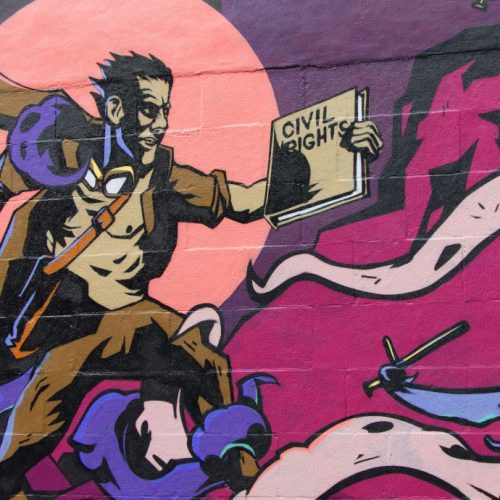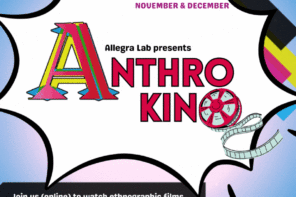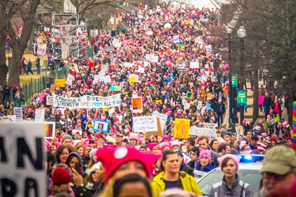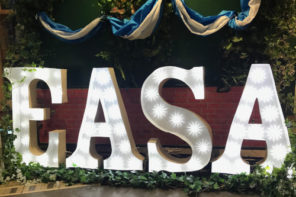While November might hold a questionable position as the gloomiest month of the year for many, the darkening late Autumn days are a perfect moment to prepare yourself for some exciting academic enlightement. This month you might find yourself interested in the history and aftermath of different social movements, or how urban art aligns with them. We also have highlighted events dealing with the vast field of South Asian studies and how landscape and citizenry relate with each other.
As always, if you want your event to feature in our next events list or if you wish to write a short report, don’t hesitate to get in touch with our events assistant at events@allegralaboratory.net
Sympo
16 November 2018, Conway Hall, London, UK
Landscape Citizenships: Grounded in the discourses of ecological, watershed, and bioregional citizenships, this symposium seeks to evaluate belonging through the idea of landscape as landship. This describes substantive, mutually constitutive relations between people and place. The emerging fields of landscape justice and landscape democracy form a background against which to examine issues from folkways to the virtual, migration and inhabitation, nationalism, and speculative futures. [more]

1-3 March 2019, Claremont McKenna College, Claremont, California, USA
South Asia: 5,000 years of history and home to a quarter of the earth’s population and its fastest-growing major economy. Its impact and its output touch virtually all countries on earth. South Asianists within colleges and universities globally ignite and fan flames of interest in the region. They take South Asia to the world. Each year leading South Asia scholars come together at SASA’s annual conference to share knowledge and insights about South Asia’s rich and unrivaled past, its bold and remarkable present, its challenges, and its soaring prospects for the future. Cultural and social sidebar events at conferences include live performances, exhibits, cuisine from the region, annual Exemplar Award presentations, and multiple networking opportunities.
Now in its second decade, the South Asian Studies Association annual conferences have long advanced and presented research in the history, humanities, and social sciences of South Asia. Beginning with our SASA 2018 Conference, however, SASA expanded this mission to include innovative Plenary Sessions which featured leaders from within South Asia-centered business and trade, government, NGOs and philanthropy. This groundbreaking blend was heralded as an unqualified success (For details of SASA 2018 see www.SAsia.org). SASA 2019 will again address and celebrate South Asia’s place in the world and leading scholars and academicians will again gather and present papers and talks within traditional academic tracks. And we will again present Plenary Sessions looking at South Asia’s business and trade, governance, NGOs, philanthropy, and higher education systems and institutions. For South Asianists, SASA 2019 at Claremont McKenna College will be the not-to-be-missed event of the year. [more]
Deadline for submission of proposals: Friday, January 4, 2019. Early submissions are greatly encouraged.

3-5 June, 2019, the universities of Paris-Est Créteil and Paris-Dauphine, France
The Stonewall riots are fraught with a conflictual memory. A standard narrative might read as follows: In the night of June 27, 1969, lesbian, gay, bisexual, and transgender patrons of the Stonewall Inn, a Greenwich Village bar on Christopher Street in New York, refuse to endure yet another occurrence of the police harassment they routinely faced. For five days and nights, the neighborhood was the scene of a confrontation between rioters and the police. In the following weeks and months, this upsurge reinforced emerging liberation movements that coalesced into a diverse political force. The events were celebrated the following year and have since generally been presented as “the birth of the gay liberation movement” that is commemorated in today’s yearly LGBTQ (lesbian, gay, bisexual, transgender, and queer) pride marches.
On the fiftieth anniversary of Stonewall, this conference aims to shed critical light on this major event and its possible effects on the development of LGBTQ mobilizations around the world. It seeks to investigate the processes of memorialization, as well as the political legacy and the cultural and activist representations of Stonewall.[more]
Deadline for application: 1 December 2018

10 May 2019, Graduate Center of the City University of New York, New York City, NY, USA
Organized movements for social change have often preceded or immediately followed periods of warfare. The temporal proximity of social movements and warfare raises several interesting questions. Among others, in what ways have movements for social change been linked to periods of violent conflict? How might war contribute to the expansion or limitation of rights for marginalized and oppressed groups? How does warfare shape the attitudes and strategies of social activists in local, transnational, and global contexts? This inter-disciplinary conference seeks to examine these and other relevant questions.
The conference welcomes papers from scholars working on a broad range of topics—from any geographic area or time period—that address the connections between movements for social change and periods of warfare. Paper topics may include but are not limited to community development, concepts of citizenship, environmental awareness, identity formation, labor organizing, and human rights. [More]
Deadline for application: 31 December 2018

28-29 May 2019, University of Tours, France
Art’s practical place in reconstituting the urban space, as one of the defining elements of urban culture, renders a twofold role. The role of art in the neoliberal urban planning shows that art is an integral part of current capitalist processes that are turning the neoliberal art subject in a source of capital—both as a resource for tourism and a real estate investment. However, recent research has found that arts and art establishments are not as significant in gentrification processes as before (Grodach, Fostor, Murdoch 2018). Indeed, art has been both a product of and a response to the unequal distribution of resources and visibility in the city through the processes of new urban planning. For example, a growing resistance against neoliberal urbanism in Europe (Colomb & Novy 2016) demonstrates the relationship of artist communities and neighborhood organizations and challenges the prescriptive approaches to art’s role in neoliberal aestheticization.
Rebel Streets conference aims to shift the focus from a rather disempowering critical perspective towards urban art to one that stresses its aesthetical and political powers as a part of the urban social resistance. We ask participants to investigate the hypothesis that the aesthetic reconfiguration of the neoliberal city does not only allow for a hegemonic restructuring of the urban environment, but it also facilitates the growth of counter-hegemonic resistance.
[more]
Deadline for application: 15 December 2018
Featured image (cropped) by Pascal Bernardon on Unsplash









